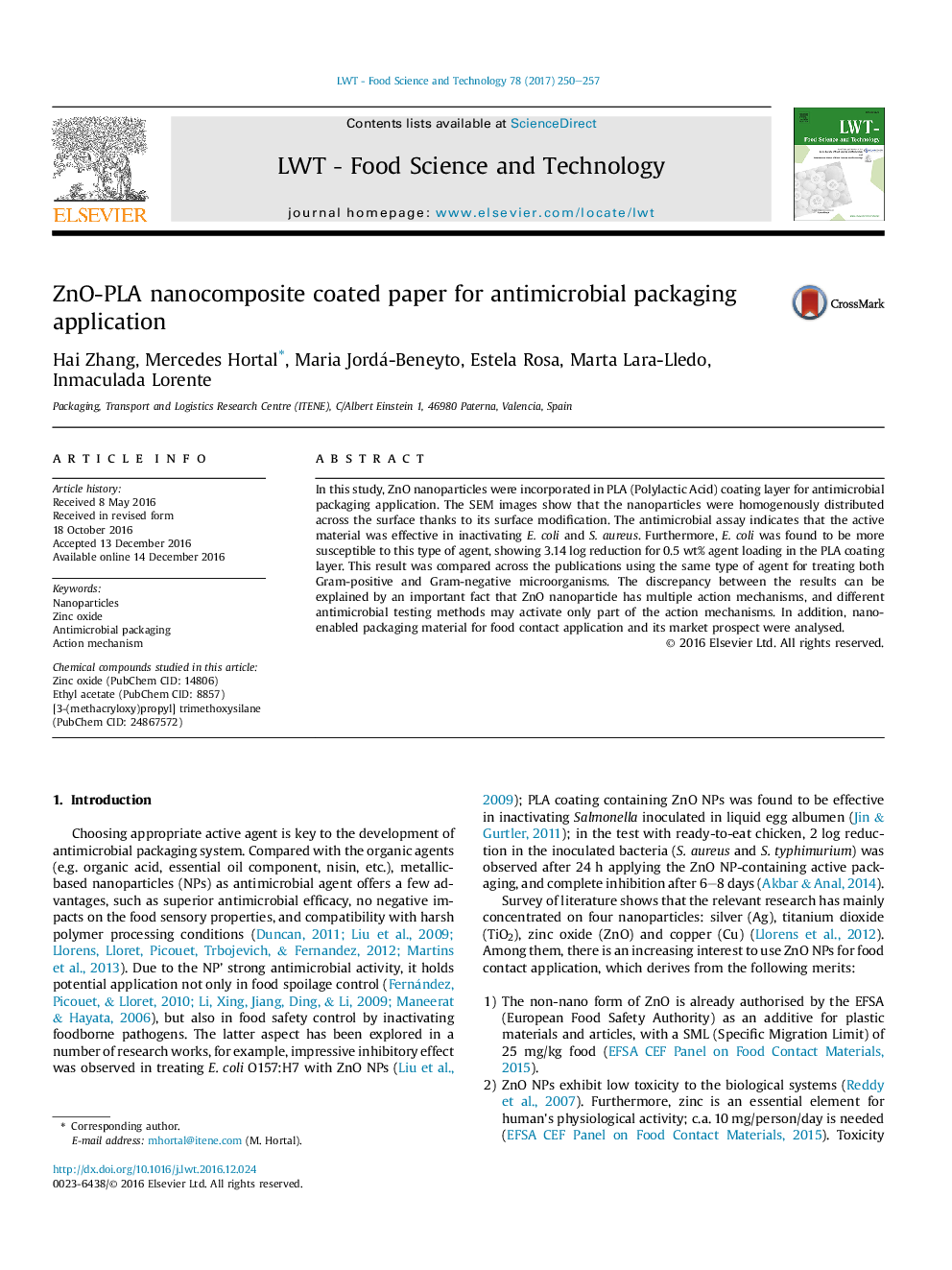| Article ID | Journal | Published Year | Pages | File Type |
|---|---|---|---|---|
| 5769044 | LWT - Food Science and Technology | 2017 | 8 Pages |
â¢Using ZnO nanoparticles as antimicrobial agents for food contact application.â¢The nanoparticles are homogenously distributed across the material surface.â¢The active material is effective in inactivating E. coli and S. aureus.â¢The effect of antimicrobial testing methods is discussed.
In this study, ZnO nanoparticles were incorporated in PLA (Polylactic Acid) coating layer for antimicrobial packaging application. The SEM images show that the nanoparticles were homogenously distributed across the surface thanks to its surface modification. The antimicrobial assay indicates that the active material was effective in inactivating E. coli and S. aureus. Furthermore, E. coli was found to be more susceptible to this type of agent, showing 3.14 log reduction for 0.5 wt% agent loading in the PLA coating layer. This result was compared across the publications using the same type of agent for treating both Gram-positive and Gram-negative microorganisms. The discrepancy between the results can be explained by an important fact that ZnO nanoparticle has multiple action mechanisms, and different antimicrobial testing methods may activate only part of the action mechanisms. In addition, nano-enabled packaging material for food contact application and its market prospect were analysed.
